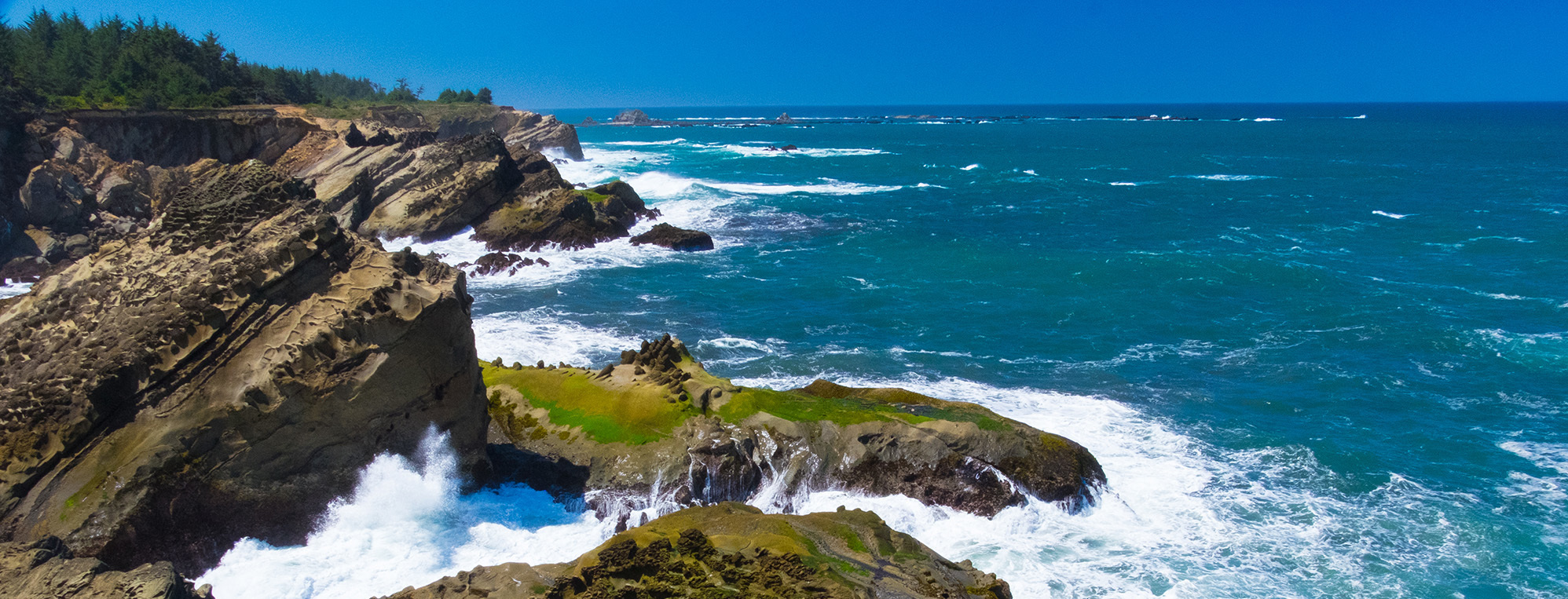
The Surfrider Foundation’s Coos Bay Chapter is celebrating a 2020 year-end victory in its campaign against the Jordan Cove Energy Project’s (“JCEP”) Liquified Natural Gas (“LNG”) project proposed for Coos Bay, Oregon. Represented by Crag Law Center, Surfrider, along with Oregon Shores Conservation Coalition, appealed a local Coos Bay County issued Conditional Use Permit for the project to the Oregon Land Use Board of Appeals (LUBA). Among our arguments, Surfrider made the point that the project will substantially interfere with public trust rights, including for those who fish, kayak, boat, and otherwise recreate in and around the bay.
Notably, among the findings in its November 2019 order issuing the permit, the County held (for the first time) that Coos Bay Estuary Management Policy 5(I), which requires that dredge and fill in the bay only be allowed where it won’t unreasonably interfere with public trust rights, doesn’t apply. Additionally, the County held, in the alternative, that the LNG project would not interfere with public trust rights.
LUBA disagreed with the County and JCEP in its December 22nd Final Opinion and Order, stating: “[…] the applicability of the public trust component of CBEMP Policy 5(I) as an approval criterion is not an issue that the county may revisit on remand.” LUBA further notes, “We specifically remanded the 2016 decision for the county to adopt more adequate findings, supported by substantial evidence, demonstrating compliance with the public trust standard.”
On the merits, LUBA also addressed the County’s conclusion that there’s a hierarchy of rights among various vessels under the public trust doctrine – that is, the County essentially concluded that large LNG tankers enjoy priority over the rights of smaller commercial and recreational fishing vessels. LUBA recognized that the “policy essence of the common law public trust doctrine is to protect the public’s right to use navigable waterways for traditional activities (transportation, fishing, recreation, etc.)” and correctly concluded that Oregon case law does not create a hierarchy of rights among vessels. It further focused on the impacts of the U.S. Coast Guard’s security zone, which would exclude all vessels, including those used for recreation, within 500 feet on either side of a transiting LNG tanker. This zone would effectively occupy the entire width of the estuary along nearly its entire 7-mile length. LUBA found that the County’s decision did not account for potential negative impacts from the security zone on fishing vessels seeking to transit through the mouth of the estuary during the critical high tide window, the most safe time for vessels to enter or exit the bay.
LUBA has remanded the decision back to the County for further deliberation, and to adopt more adequate findings regarding how the security zone will affect fishing boats using or transiting the mouth of the estuary during high tide. LUBA also concluded that remand is necessary for the County to adopt more adequate findings, supported by substantial evidence, regarding its finding that the majority of the anticipated 240 annual LNG tanker transits will occur at night, when there are fewer other vessels present.
Surfrider had also argued that the County inappropriately applied the standard set forth by CBEMP Policy 4(I), which provides, in part, that a permit for dredge and fill activities must be supported by findings demonstrating the public’s “need and gain” for the project warrant modification or loss to the estuarine system. LUBA agreed with Surfrider and Oregon Shores Conservation Coalition that the County’s failure to discuss adverse impacts or weigh those impacts against any purported benefits was inappropriate and necessitates a remand for further findings.
“This is the second time LUBA has found fault in Coos County's decision to approve this project. The issue of public trust rights to use the Bay is important to all who fish, kayak, and use the estuary. LUBA's decision recognizes the importance of this issue and the applicant's failure to address the conflicts this project will cause with other users of the bay,” said Surfrider's attorney Courtney Johnson of Crag Law Center. “It's not clear how the applicant will be able to overcome this conflict on remand, but we remain ready to challenge them again if they continue to seek approvals.”
The County’s CUP is just one of at least a dozen permits and authorizations needed for the LNG terminal, at the federal, state, and local levels. Surfrider will continue to participate in the remand proceedings back at the County, and to voice its strong opposition to the project before other decision makers. For updates on Surfrider's campaign against the JCEP LNG terminal, and to learn more about Surfrider's Coos Bay Chapter, visit the Chapter's website here.
Update // May 2021
On May 10th, Jordan Cove Energy Project and Pacific Connector Gas Pipeline submitted a letter to the Federal Energy Regulatory Commission (FERC) alerting FERC that they have decided to “pause” the development of their LNG terminal and pipeline projects while they assess the impact of FERC's decision that the State of Oregon did not waive its Clean Water Act Section 401 authority, and the Department of Commerce's decision to sustain Oregon's federal consistency determination. While it’s possible the applicants may resume their pursuit of the projects at a later date, this “pause” is significant enough that that they've requested FERC to withdraw the agency's consultation requests with both the National Marine Fisheries Service and the U.S. Fish and Wildlife Service. These “consultations” are required to consider the projects’ impacts on endangered and threatened species. Accordingly, on May 14th, FERC withdrew its requests for formal consultations with those agencies. If the applicants resume project development activities, they will need to restart the consultation process. In addition to the other recent victorious milestones in the campaign to stop the Jordan Cove Energy Project, including Surfrider's recent LUBA win, this is yet another significant development. Surfrider remains hopeful that Jordan Cove will abandon the project once and for all, and will continue to staunchly fight against it.
